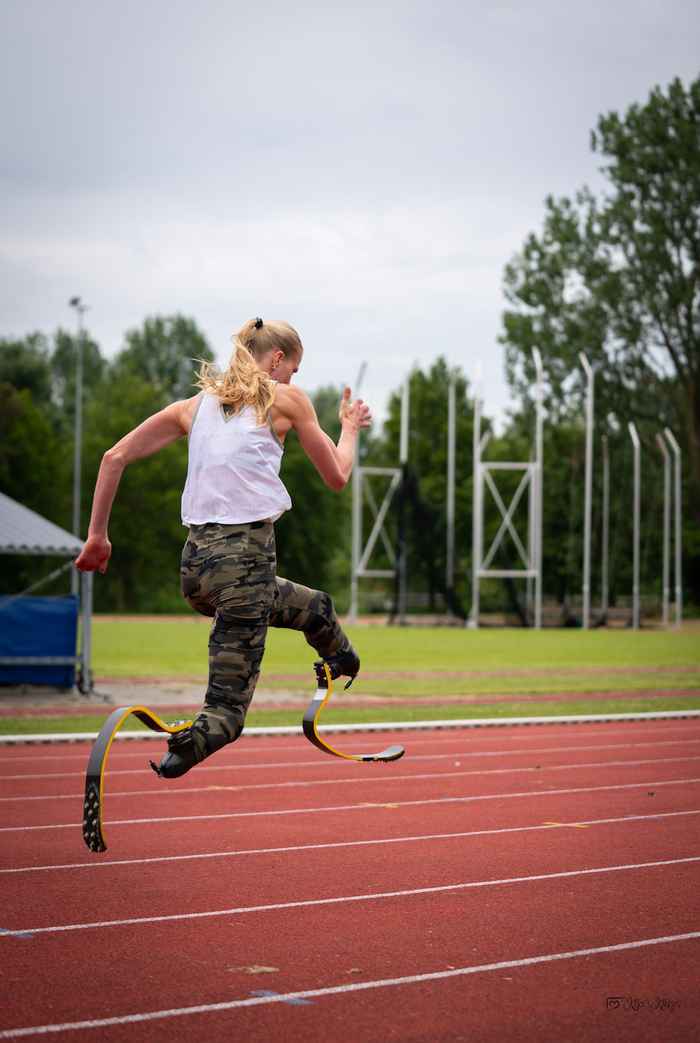Performing under pressure: how to do it – and what are the pitfalls?
15 August 2024

Tokyo, 2021. People were wondering if US gymnast Simone Biles, who won four gold medals at the 2016 Olympics, would cause another sensation? It was very well possible – she had qualified for all the finals with apparent ease. But during the vault event, things suddenly went wrong. She made a highly unusual mistake for her and decided to withdraw shortly afterwards, initially citing medical reasons. Afterwards, she said she suffered from the so-called twisties, a kind of blackouts that cause a loss of control over the body. Having to perform under pressure is a major cause of this. Biles took a break, went into therapy and returned to the highest-level stage this summer. In doing so, she proved that even the best and most experienced athletes can succumb to pressure – and that you can break free from that pressure.
What kind of pressure do athletes feel?
‘Whenever something is at stake, which is almost always the case in sport, there is pressure. It is simply about winning or losing. The literature frequently distinguishes between three separate forms. The first is personal pressure: your relationship is not going well, you are experiencing stress at work or in your studies (many Olympic athletes work or study alongside their sport) or you have just become a mother. Then there is sports pressure: you want to do what is expected of you, you don't want to perform poorly and you don't want to be inferior to your rivals. And finally, there is organisational pressure: this could be a conflict with your coach, but also the way you are supervised during the Olympics. For example, you might be working with a coaching team other than the one you are used to. All these forms of pressure can create tension.‘
It goes without saying that pressure can have an inhibiting effect on your performance. Nerves also make their mark physiologically, right?
‘Yes, many athletes experience that their heart rate goes up when something is at stake, which is normal. However, how an athlete approaches pressure, as something positive or as something negative, can also make an impact physiologically. When you approach the pressure you feel positively, as a challenge, the amount of blood your heart pumps out per minute goes up. If you experience the pressure as something negative, i.e. a threat, then the resistance in the blood vessels becomes higher and your body has to work harder.‘
But pressure can also be a good thing.
‘Yes, you can embrace the pressure, make it your friend. At that point, you see pressure as a challenge, where you experience that you have enough resources (such as self-confidence, control and support from people around you) to deal with the pressure, allowing you to approach pressure as something positive that helps you perform better. However, many athletes perceive pressure as something bad, as a threat. It makes them wonder if they might not be good enough or gives them the feeling they are not in control of the situation.‘
As a sports psychologist, how do you ensure the right mindset?
‘Sports psychologists make a case formulation together with the athlete: what is the situation like, what exactly is bothering them, what are they feeling and how would they like to change it? In doing so, we can use skills such as self-efficacy (the extent to which someone is confident in their own ability), perceived control (the awareness of what someone has control over – their own actions – and what they do not – the referee's decisions) and approach motivation (complete focus on the task at hand and the best way to complete it).
As long as the skills in your head outweigh the demands placed on you, you see the pressure as a challenge, as something positive. If the balance tips to the other side, you start to see the pressure as a threat.
It is a sports psychologist's job to help athletes with that balance and help them develop these skills, for example through breathing, relaxation, visualisation and self-talk exercises. This is a constant process in which self-regulation through the plan, act, reflect cycle can help. The athlete makes a plan with the focal points, executes this plan as well as possible and subsequently reflects on the positive and negative points. Even if there are no specific problems, this approach can help athletes get better.’
Paralympic athlete Fleur Jong: 'I experience pressure in fits and starts – though I am thankfully pressure-free most of the time'
In August, Communication Science student Fleur Jong (28) will compete in the Paralympics for the third time. She will compete in the 100-metre and long jump events – in the latter, she is defending her Paralympic title.
At the 2023 World Cup, Fleur made it to the final of the 100 metres with almost playful ease. Just before the final, her nerves suddenly got to her. 'My coach said: "What are you suddenly acting nervous about?" I wanted to win SO badly, and given my performance so far that day, there was no reason to think I wouldn't succeed. It did turn out that way in the end, but I had to find the right mindset.'

‘Just win’ or focusing on a particular task
For Fleur, there are actually two mindsets that help her put in a good performance. She either drills the thought ‘I'm just going to win this race’ into her head or she focuses on a particular task, such as continuing the ‘start’ for as long as possible – this involves running with your head in a lower position for as long as you can, which keeps you pushing forward and forces you to keep raising your speed. Depending on how I feel, I apply either of these strategies.'
Planning gives a sense of control
The day before the competition, Fleur always makes a schedule. 'For example, I specify at what time I get up, have breakfast and have to catch the bus to the stadium and how much time I spend warming up. Doing this gives me a sense of control.'
'Making the pressure your friend? I don't know if that's really possible'
What about making the pressure your friend, as Carla Meijen describes it? 'I think finding out why you are tense and feeling pressure is particularly important. I don't know if you can really make the pressure your friend, because it's not that nice of a feeling. I experience pressure in fits and starts – though I am thankfully pressure-free most of the time. In any case, it is important not to get frustrated if you find yourself unable to make the pressure your friend.'
The tension in the call room
One of the moments when tension can run pretty high is in the so-called call room, where all the athletes sit together for half an hour before the race and where the organisation’s staff check the blades' start numbers, among other things. 'You sit alone with your fellow athletes, without your coach and also without a phone, for example – electronics are not allowed. Personally, I always try to chill as much as possible, or talk to the others – even if they are your opponents, most of them are still your friends as well. Sometimes, that time just flies by, but there are also times when those 30 minutes feel incredibly long and the athletes' nerves increase tremendously.’ Laughing, she says, 'Games have been won and lost in that call room.'